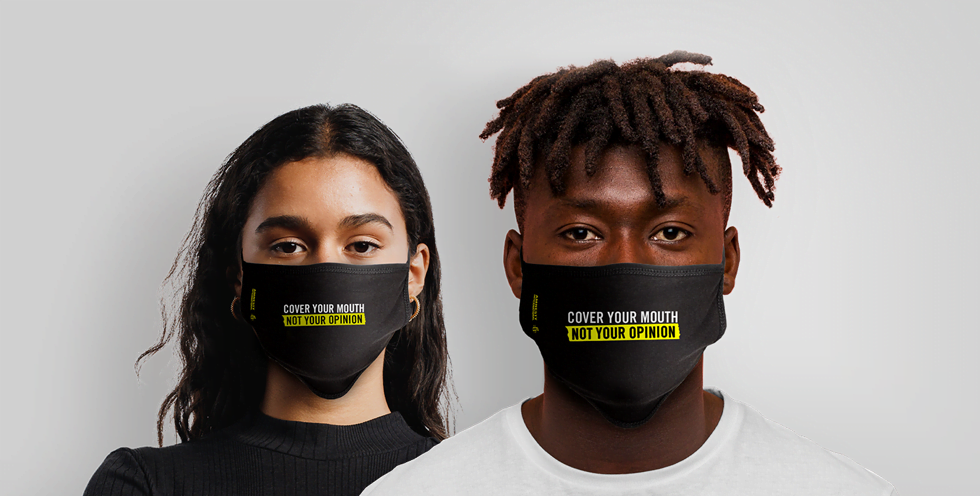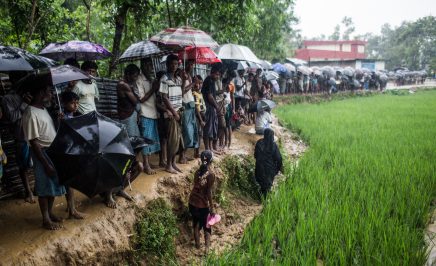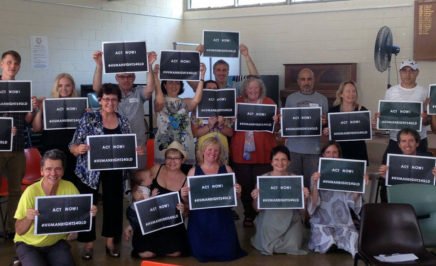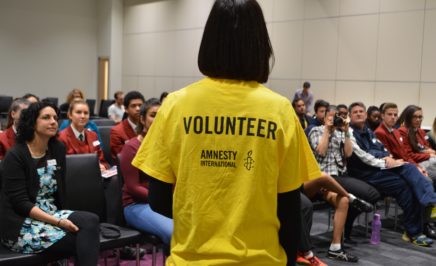New restrictions, increased police powers and the ability to suspend acts of Parliament have been introduced by the Victorian State Government to deal with a rapidly increasing number of positive COVID-19 cases.
We’re all thinking of our family, friends, colleagues and those we don’t know in Victoria as we try to navigate our way through this latest phase of the virus.
It’s also confusing to know what our rights are when our country is the only western democracy that does not have a framework, such as a human rights charter, that provides clear guidance on protecting both our health and our rights. Of course it is not a breach of our human rights to wear a mask, but the extraordinary unchecked powers our Governments are enacting add to the uncertainty that many feel
Governments should help protect our health and our rights
What’s clear is that we have to take care and be kind to each other through this incredibly difficult time and Amnesty broadly supports the steps taken by governments — State and Federal — to limit the spread of COVID-19 and keep us safe. However, our rights must be protected and rules should be applied equally to all people.
Being considerate of others and following medical advice does not mean we can’t still hold our governments to account for the kinds of emergency powers that have been triggered in Victoria to deal with the pandemic.
Although Australia does not have a national human rights charter, some states and Territories, including Victoria, do have a charter of human rights, meaning the laws and restrictions implemented under COVID, could be tested against standard human rights instruments – thus providing some level of accountability.
Here’s a breakdown of the restrictions, mandates and new powers in Victoria and what they mean for your rights:
What is a State of Disaster and what does it mean for your rights?
Victorian Premier Daniel Andrews has declared a State of Disaster, which is a trigger for the Emergency Management Act (EMA). Under this Act broad powers can be conferred to agencies such as the police. Victoria is already under a State of Emergency which was triggered by the “first wave” of COVID-19 in March, and which has subsequently been extended until August 16.
Under a State of Disaster, the Emergency Services Minister, currently Lisa Neville in Victoria, can “direct any government agency to do or refrain from doing any act, or to exercise or perform or refrain from exercising or performing any function, power, duty or responsibility”.
The State of Disaster came into effect on August 2, will last for at least a month and can be extended, as the State of Emergency has been extended.
Melbourne and the Mitchell Shire are from August 5th subject to Stage 4 lockdown measures and regional Victoria is on Stage 3 restrictions.
Additionally, those in Melbourne will be subject to a 8pm-5am curfew.
Curfews, quarantines and your rights
Amnesty International acknowledges that states can impose certain restrictions on some human rights in order to protect public health in the context of a pandemic such as the COVID-19 epidemic, but any such measures should be consistent with the wider international human rights framework.
Quarantines and curfews are only permissible under international human rights law, in particular the rights to health, personal liberty, safety and security, in limited circumstances. These restrictions should not be discriminatory, must respond to a pressing public or social need, pursue a legitimate aim, and be proportional to that aim. They should be of limited duration, subject to periodic review, and the least restrictive alternative must be adopted where several types of limitations are available.
Mandatory face masks – cover your mouth, not your opinions
There is nothing in international human rights law against a state taking mandatory measures where there is a public health necessity, such as the prevention and control of COVID-19, however, mandatory measures must be implemented in accordance with international human rights law and key safeguards.
Amnesty continues to monitor government response to the COVID-19 pandemic to ensure measures to contain the virus are proportionate and applied without discrimination.
But common sense tells you that wearing a mask, if it is advised or mandated by health authorities, is a reasonable measure to protect your health and the health of others.
Increased police powers
Under the State of Disaster declaration, police can enforce the new regulations. As we’ve seen over the course of the pandemic with new powers given to emergency services to enforce, this can sometimes lead to discrimination and police overreach.
The public trust in police is absolutely essential for managing this crisis, and controversial early incidents directly undermined this goal.
Clear guidelines are needed to clarify both to the public and the police, where the lines of responsibility lay in COVID-19 social safety measures.
We understand the need for restrictions on movement in response to a one-in-100 year pandemic, but that response should still have human rights at its core and should be proportionate and applied with common sense.
What’s really alarming is the potential for vulnerable people in our community to be unfairly targeted.
We’re asking for transparency and accountability in how the police implement the COVID-19 restrictions





